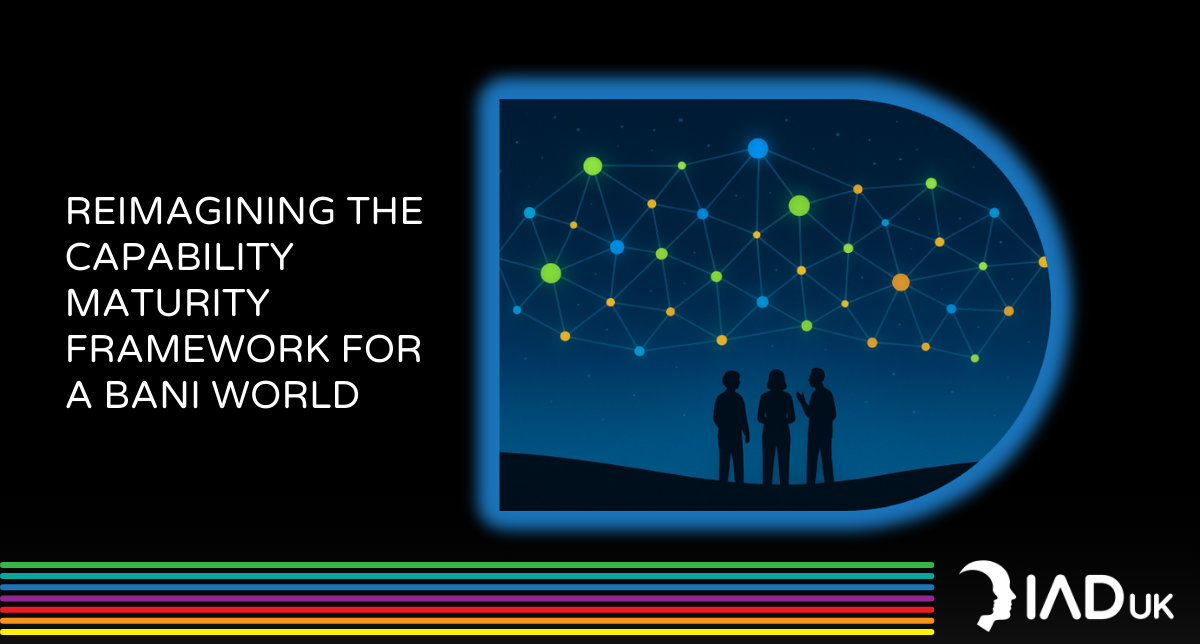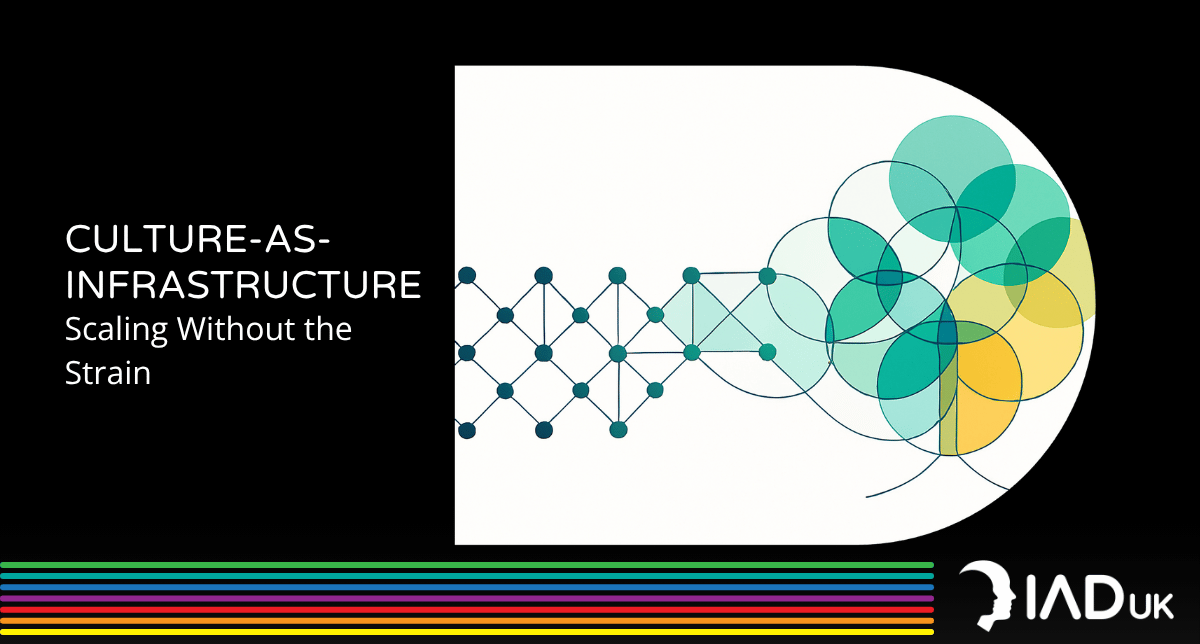The Science of Smarter Decisions
Why Cognitive Flexibility is the Key to Innovation and Operational Excellence

Making decisions in today’s world is no simple task. The sheer volume of data, coupled with the speed of change, has made decision-making more challenging than ever before. For leaders, it’s not just about gathering information—it’s about navigating complexity with clarity, intention, and flexibility.
This is why the growing focus on scientific literacy and evidence-based decision-making during January is so timely. As organisations strive to innovate and excel, the ability to make smarter, more nuanced decisions becomes a cornerstone of success. But what does it take to make decisions that drive both innovation and operational excellence?
Dynamic Intelligence offers an answer. Through the Dynamic Intelligence Development System (DIDS), leaders can enhance their cognitive awareness, mitigate biases, and adapt their thinking to different contexts. This approach doesn’t just help leaders respond to challenges—it equips them to anticipate and shape outcomes in a rapidly evolving environment.
In this article, we’ll explore how DIDS enables leaders to develop thinking complexity, make better decisions, and drive measurable organisational outcomes. From fostering innovation to improving efficiency, smarter decisions can transform your organisation’s future.
The Challenges of Decision-Making in Complexity
The modern workplace is defined by complexity. From navigating market disruptions to managing diverse teams in hybrid environments, today’s leaders face challenges that defy traditional, linear problem-solving. This complexity is compounded by the explosion of data, making it harder to discern what’s relevant and actionable amidst the noise.
Decision-making, once guided by intuition or experience alone, now requires a more structured and evidence-based approach. Yet many leaders find themselves falling into common pitfalls:
- Cognitive biases that skew judgment, such as confirmation bias or overconfidence.
- Reactive thinking, where decisions are made in haste without considering long-term implications.
- Information overload, which leads to paralysis or surface-level solutions rather than deep, thoughtful analysis.
Scientific literacy and evidence-based practices are vital tools for addressing these issues. They encourage leaders to question assumptions, evaluate data critically, and approach decisions with a balance of logic and creativity. However, applying these principles effectively requires more than knowledge—it demands cognitive flexibility and the ability to adapt one’s thinking to fit the situation.
Dynamic Intelligence bridges this gap by equipping leaders with the tools to navigate complexity with clarity. Through enhanced cognitive awareness and intentional thinking, leaders can overcome biases, interpret data meaningfully, and make decisions that align with both immediate goals and long-term vision.
The question isn’t whether complexity will challenge your organisation—it’s whether your leaders are prepared to thrive within it.
How Dynamic Intelligence Enhances Decision-Making
Dynamic Intelligence is more than a framework—it’s a transformative approach that equips leaders to navigate uncertainty with confidence and intention. At its core, it focuses on developing cognitive flexibility, enabling leaders to adapt their thinking based on context, data, and the complexity of the challenges they face.
Through the Dynamic Intelligence Development System (DIDS), leaders can cultivate key capabilities that elevate decision-making:
- Cognitive Awareness: Understanding how personal biases and habitual thinking impact decisions. DIDS helps leaders identify these patterns and shift toward more balanced, objective perspectives.
- Cognitive Flexibility: The ability to approach problems from multiple angles and adjust strategies as new information emerges. This ensures decisions are not only well-informed but also adaptable to changing circumstances.
- Deliberation: Aligning decisions with long-term goals while considering immediate needs. Leaders with deliberate thinking don’t just react—they anticipate and shape outcomes.
Imagine navigating a journey with a dynamic GPS system. Unlike a static map, the GPS recalibrates in real time based on traffic, obstacles, and detours, guiding you toward the best possible route. Similarly, Dynamic Intelligence equips leaders with the cognitive tools to navigate complexity, anticipate challenges, and make informed choices that align with both organisational and situational demands.
The benefits of this approach are tangible. Leaders who embrace Dynamic Intelligence:
- Make more balanced and inclusive decisions by evaluating diverse perspectives.
- Anticipate challenges and proactively adapt strategies.
- Drive better outcomes by aligning decisions with organisational goals and data insights.
Dynamic Intelligence doesn’t eliminate complexity—it enables leaders to thrive within it. By embedding these principles into decision-making practices, organisations can foster innovation, operational excellence, and resilience in the face of uncertainty.
Actionable Insights for Smarter Decision-Making with DIDS™
Understanding the value of Dynamic Intelligence is one thing; putting it into practice is another. The Dynamic Intelligence Development System™ (DIDS™) offers actionable strategies that leaders can implement to improve decision-making across their organisations. Here are three practical steps to get started:
1. Recognise and Mitigate Cognitive Intention Biases
Cognitive Intention biases often cloud judgment and lead to suboptimal decisions. They are the root cause of cognitive biases such as confirmation bias and sunk cost fallacy. DIDS helps leaders identify and mitigate these biases and approach decision-making with greater objectivity.
Use reflective exercises and decision audits to uncover patterns of biased thinking. Encourage leaders to pause and ask, “What assumptions am I making?” or “Have I considered alternative viewpoints?”
Reducing bias ensures decisions are based on evidence rather than ingrained habits, leading to clearer, more effective outcomes.
2. Foster Collaborative Decision-Making
No one person has all the answers, especially in complex situations. Collaborative decision-making leverages cognitive diversity within teams, ensuring a broader range of perspectives and thinking styles.
Create structured decision-making forums where diverse team members can contribute their views. Use DIDS to map cognitive strengths within the team and assign roles that maximise those strengths during discussions.
Teams that combine different thinking styles are better equipped to tackle complexity, generate innovative solutions, and avoid groupthink.
3. Develop Context-Sensitive Thinking
Effective decisions are rarely one-size-fits-all. Context-sensitive thinking allows leaders to adapt their decision-making style to the situation, considering factors like urgency, risk, and available data.
Train leaders to categorise decisions based on complexity and stakes. For example:
- Simple decisions may follow established protocols.
- Complex decisions require deeper analysis and flexibility.
- Integrate Dynamic Intelligence training into leadership development programs to build these adaptive capabilities.
Flexibility ensures leaders can pivot strategies effectively, balancing short-term needs with long-term goals.
These strategies go beyond surface-level fixes. By integrating DIDS principles, organisations can create a culture where smarter decisions become the norm rather than the exception. Leaders who think flexibly, collaborate effectively, and mitigate biases are not just better decision-makers—they’re catalysts for innovation and operational excellence.
Which of these actionable steps will you implement first to elevate decision-making in your organisation?
The Organisational Impact of Smarter Decisions
The ripple effects of smarter decisions extend far beyond immediate outcomes. When leaders make decisions that are intentional, adaptive, and evidence-based, the benefits cascade across the organisation.
First, smarter decisions fuel innovation. Leaders equipped with Dynamic Intelligence can evaluate diverse perspectives and make choices that push the boundaries of traditional thinking. This leads to breakthrough ideas, more agile responses to market shifts, and a culture of creativity that drives long-term growth.
Second, better decision-making enhances operational efficiency. Decisions informed by cognitive flexibility and collaboration often address root issues rather than surface symptoms, reducing wasted resources and ensuring sustainable results. Teams feel empowered to execute strategies with clarity and purpose, eliminating unnecessary friction and confusion.
Third, organisations that embed smarter decision-making processes build resilience. In a volatile world, the ability to adapt quickly to change is a competitive advantage. Leaders who model intentional thinking set the tone for an organisation that thrives under pressure rather than falters.
Consider the cumulative effect of these benefits: a more engaged workforce, stronger stakeholder trust, and an organisation positioned to seize opportunities in complexity. Dynamic Intelligence isn’t just about better decisions—it’s about creating a foundation for excellence that touches every part of your organisation.
The question isn’t whether your organisation will face challenges—it’s whether you’re prepared to navigate them with confidence and clarity.
In an environment where complexity and uncertainty reign, smarter decisions are no longer optional—they’re essential. Organisations that equip their leaders with the tools to think flexibly, collaborate effectively, and act intentionally will outperform those stuck in traditional, reactive models.
Dynamic Intelligence offers a framework for transforming decision-making. By enhancing cognitive awareness, reducing biases, and fostering collaboration, it empowers leaders to navigate complexity with clarity and purpose. The result isn’t just better decisions—it’s a culture of resilience, innovation, and operational excellence.
As you plan for 2025, consider this: What could your organisation achieve if your leadership team mastered the art of smarter decision-making?
The future will demand smarter decisions. Will your organisation be ready to make them?
Schedule a call today to evaluate your leadership team’s decision-making capabilities
Alternatively, why not download our comprehensive brochure




